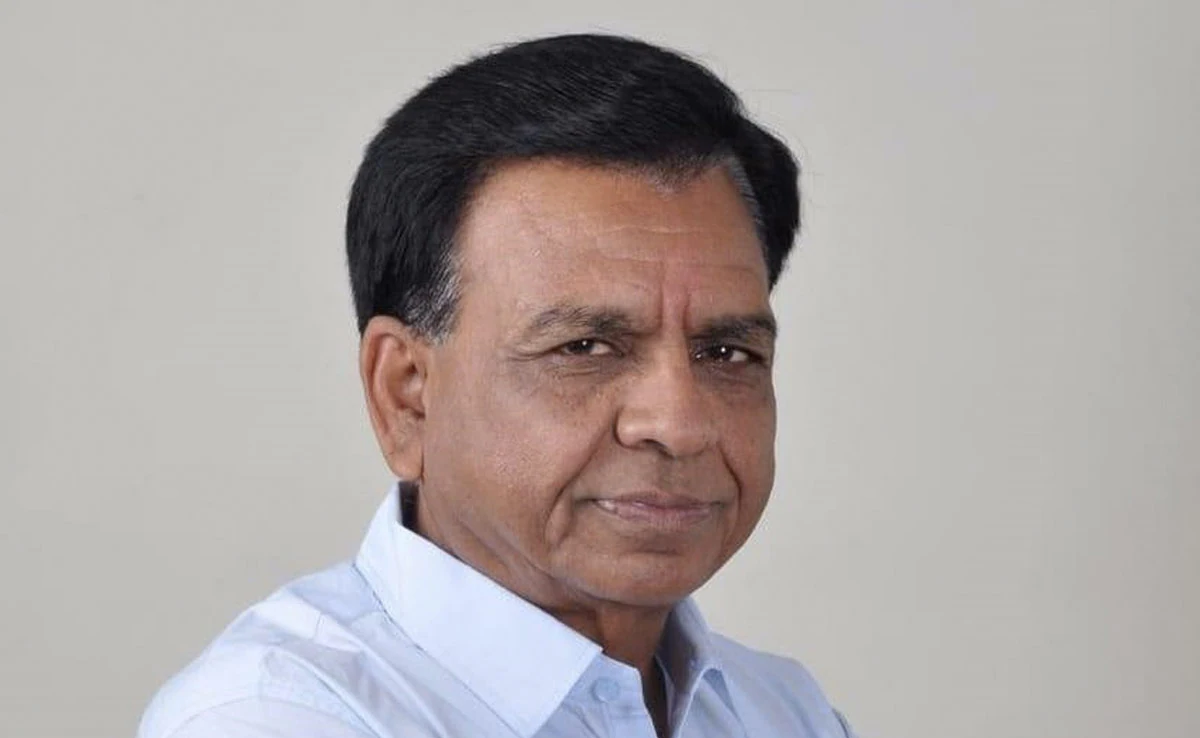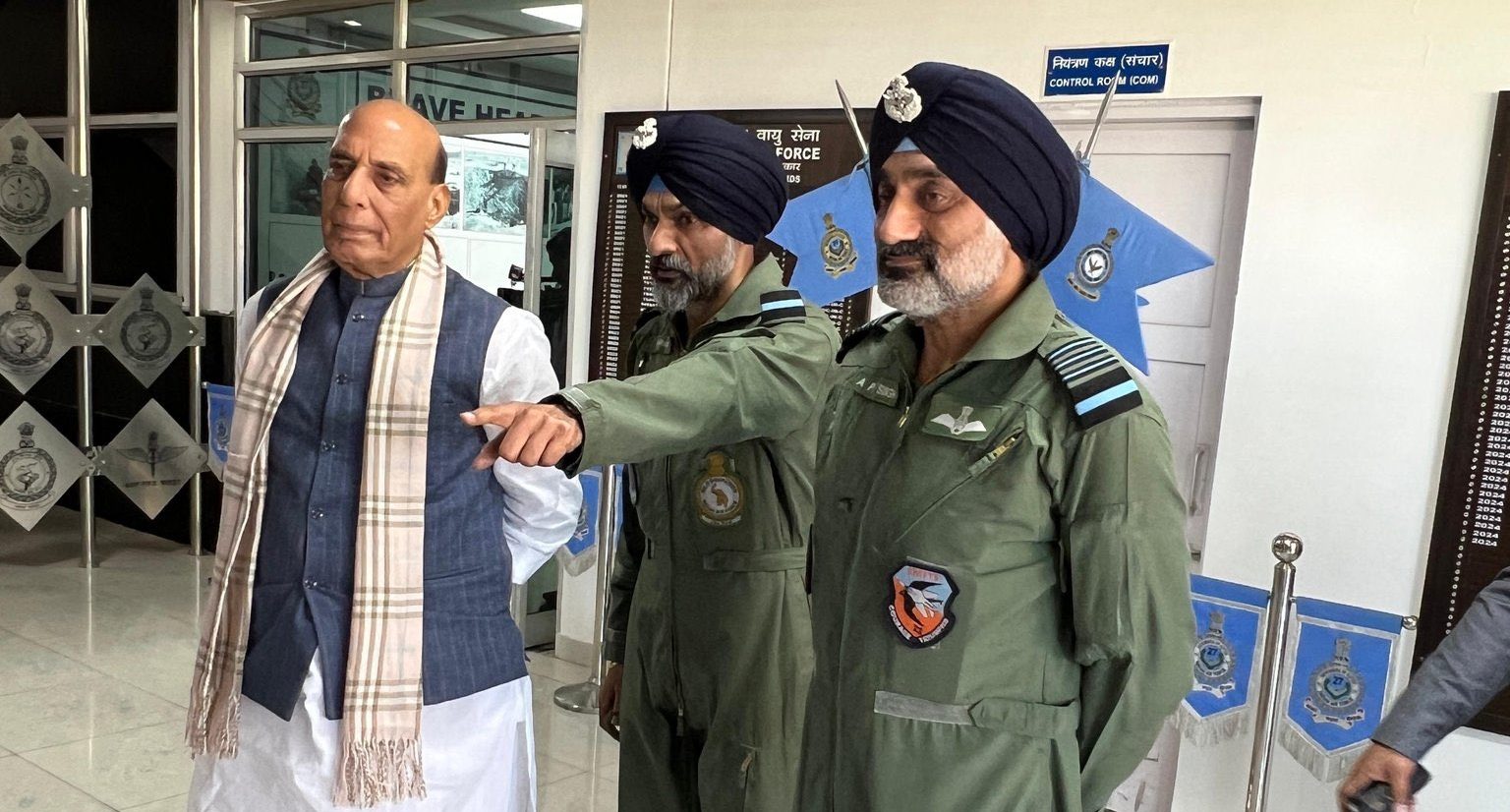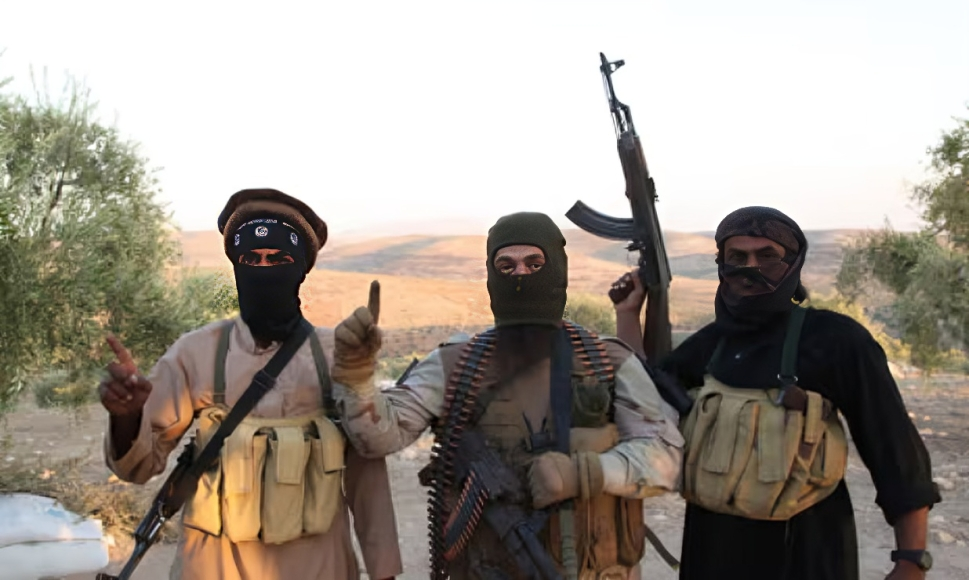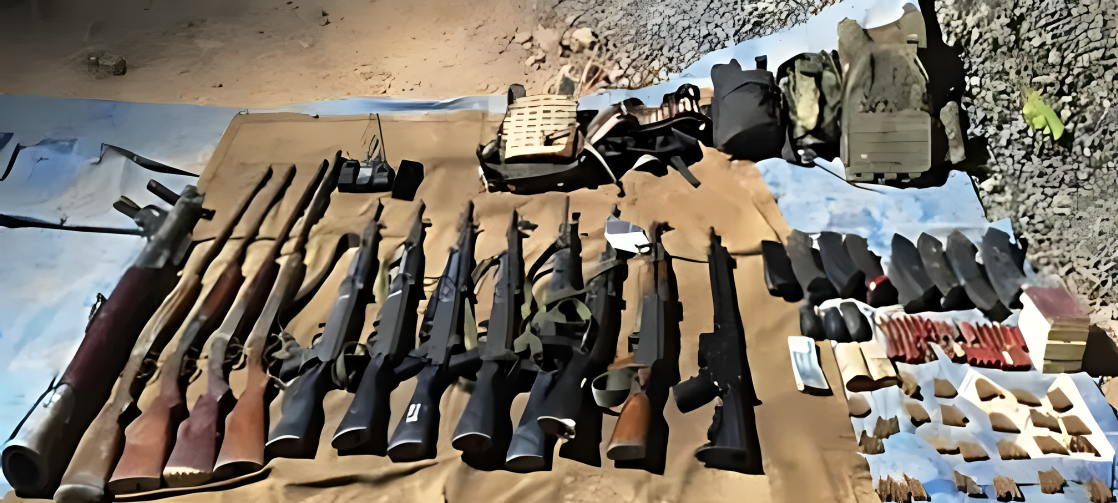Madhya Pradesh Deputy CM Sparks Controversy with Remarks on Indian Army
Madhya Pradesh Deputy Chief Minister Jagdish Devda has ignited a fresh political controversy with his comments on the Indian Army,…
Defence Minister Rajnath Singh Reviews Operation Sindoor Success at Bhuj Airbase
Defence Minister Rajnath Singh visited the Air Force Station in Bhuj today to review the Indian Air Force’s successful execution…
Southern Command’s Chief Lt Gen Dhiraj Seth Inspects Bald Eagle Brigade in Rann of Kutch
Lieutenant General Dhiraj Seth, General Officer Commanding-in-Chief of the Indian Army’s Southern Command, paid a strategic visit to the Bald…
Pakistan Allocates Rs 532 Million to PoK Amid Terror Funding Allegations
The Government of Pakistan has allocated a special fund of Rs 532 million to the administration of Pakistan-occupied Kashmir (PoK),…
India’s Defence Budget May Get ₹50,000 Crore Boost After Operation Sindoor
Following the success of Operation Sindoor, India is set to increase its defence budget by ₹50,000 crore, taking the total…
Assam Rifles Neutralize 10 Militants, Seize Arms Cache Near Indo-Myanmar Border
In a major counter-insurgency success, the Assam Rifles neutralized 10 militants and recovered a large cache of weapons during a…






